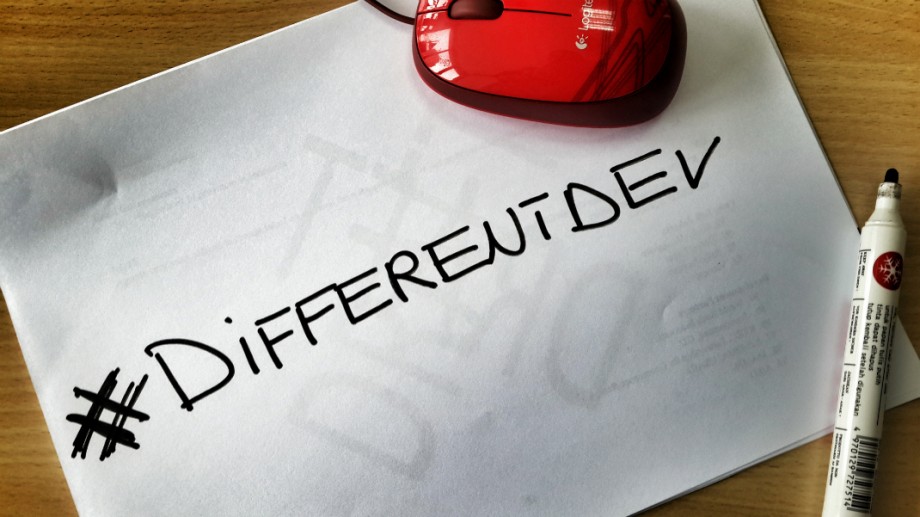Joanna Klever is Head of Fundraising. She joined the Polis team in June 2014 bringing in exactly what was needed for fundraising: a creative thinking combined with a willingness to do things differently! Her interest in innovative development approaches was born during her stay in the Dominican Republic where Joanna worked for the former German Development Service (DED/GIZ) and was exposed to the realities of current development policies.
What led you to become part of The Polis?
The moment I heard about the Polis project I was captivated. The idea behind The Polis is incredibly simple, yet efficient. It made me wonder how sixty years of global development work have not lead to the creation of a ‘Polis’ earlier! Being part of a creative, enthusiastic and experienced team was just as appealing as the idea of joining an idea that has the power to significantly impact people worldwide.
As a core member of The Polis, can you describe your role and key responsibilities? Can you go into detail about your experiences as Head of Fundraiser for The Polis?
As Head of Fundraising, my role inevitably comes with a number of responsibilities! I joined The Polis from its inception, which is such a rare opportunity as I have been able to be part of the whole process, experience the ups and downs, make mistakes and learn from them. As any fundraiser will know, it is a challenging role, and I have definitely perfected the art of multitasking: from managing our new team, developing fundraising strategies, connecting with potential donors and researching the general fundraising environment in our sector. Admittedly, the sector is not an easy one – we have encountered a number of hurdles: for example, the nature of our model is particularly abstract, which is both its strength and its Achille’s heel. We have also had a very short timeframe, which means we have had an intensive period of planning, networking, researching… which as Head of Fundraising, is both exhausting and exciting!
What do you feel are the main strengths of The Polis?
Before joining ReSeT, I researched the impact of IMF and World Bank policy in Latin America, and it was very frustrating: everyone observes the problems related to developmental policy, everyone criticises it, but very few clear alternatives are put forward. Then I came across the Polis project, and that was the first time that I was involved in a project that approached these issues from a completely different angle. From what I had seen, it just makes so much sense to not make these local-global relationships about institutions or large-scale agendas, but rather about very simple, effective human contact. The Polis does that: it brings together actors from different parts, with complementary skills and abilities, without any interference by politics or institutional demands. And that is exactly what is needed.
For the Polis fundraising team, what initiatives are driving the project forward?
We have recently made a few changes in our team and fundraising strategy that has really made a difference to our efficiency and drive. We have not only expanded the team, but we have created three new departments, each with specific strategies towards a fundraising goal. Our new team-members have brought a really fresh perspective to our project, and subsequently we have developed a very solid Polis fundraising approach. The boost this has given us has increased the pace, depth of research and accelerated the networking process even further, it’s a big leap for The Polis, and a momentous time to be Head of Fundraising!
What are you looking for in a funder?
Well, there are three different types of funders that we’re looking at. The first are those whose role it is to support innovate and daring development projects, such as certain foundations and company sponsorhip. The Polis is highly replicable and relatively simple to implement while still being very ambitious. On the other hand, the problem that I am personally encountering a lot is that funders often look for something directly tangible, rather than invest in a model. A school is easy to fund from an administrative perspective; but a new way of working, not so much. So that means that we need to play around with that, and actually link it directly to existing local realities in specific regions or between specific local/global relationships.
The second category is actors (agencies, NGOs and certain companies) that are interested in specific aspects of The Polis, rather than the model as a whole. This includes specific local connections and expertise, consulting and research on local/global relations, and methods of matchmaking.
Finally, we are talking to social investors. Even though we are a not-for-profit organisation, The Polis generates its own revenue after the initial start-up period for local connections, which means that we combine the best of both worlds in my view: financial sustainability and social impact.
Most importantly: we do not look for funders who will only provide money or resources. We look for partners who are ready and willing to engage in a relationship in which we progress together and advance The Polis. We want to partner with organisations that can significantly strengthen our work and impact.
Together with the funders, global resources and local communities, what will be the full impact of The Polis in five years?
In five years The Polis will be a running project, fully operational in lots of local communities in several countries across the globe! We will look back at a history of successful connections in which the Polis model has served local communities and their ambitions. The Polis will be that springboard local communities use to implement their ideas, find their voice and prosper.


